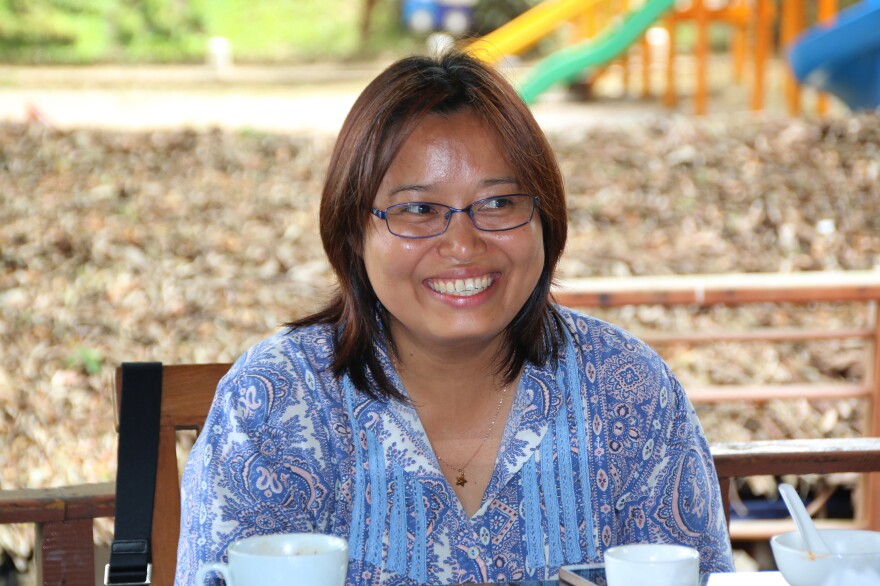In Myanmar, also known as Burma, initial vote counts show the pro-democracy opposition is headed for a decisive victory, two days after the freest elections in a generation. For two nights in a row, supporters of the National League for Democracy (NLD) have partied in the streets to celebrate their apparent victory.
One of the first NLD winners to be announced is feminist and pro-democracy activist Zin Mar Aung. She says opposition leader Aung San Suu Kyi is trying to keep the celebrations from getting out of hand.
Suu Kyi and NLD leaders "are trying to manage and control the overwhelming victory and the emotion of our people," she says. "We need to enjoy the victory cautiously."
Cautiously, she says, because if the party wins, Suu Kyi will need to form a ruling coalition — and she can't afford to alienate the election's losers.
Despite some political reforms over the past five years, 25 percent of the seats in parliament are still reserved for unelected military lawmakers. Even if the opposition wins, that will make it tough for them to push for further reforms.

As for Zin Mar Aung, she served 11 years in jail because of her activism with the NLD. She believes that activism helped pave the way for her electoral win. "I think it's a fruitful result of our previous activities and our previous commitments," she says.
But election results have been trickling in so slowly that the NLD is worried. It has made numerous allegations of vote-rigging to the authorities.
One reason the election may be hard to steal, though, is the presence of more than 10,000 domestic and foreign observers. One of them is Mary Robinson, the former president of Ireland and an observer with the Carter Center. She says the election puts Myanmar solidly on the path to democracy, and the enthusiasm of Burmese voters is a refreshing contrast to the apathy of some voters in more mature democracies.
"When you see how much it means and what a signal it is of a people's courage and determination to change, it's very moving," she says.
It's even more moving for the Burmese people themselves, who have fought for nearly two centuries to be free — first of British and Japanese colonial rule, and then a brutal military dictatorship.
"One of the first people we talked to had been waiting in line since 3 a.m." to vote, says Jason Carter, the incoming Carter Center board chairman and former President Jimmy Carter's grandson. "And I said, you know, 'Wow, that's a long time.' And he looked at me and said, 'No, I've been waiting so much longer.' "
Copyright 2020 NPR. To see more, visit https://www.npr.org. 9(MDAxMzY2MjQ0MDEyMzcyMDQ5MzBhZWU5NA001))




